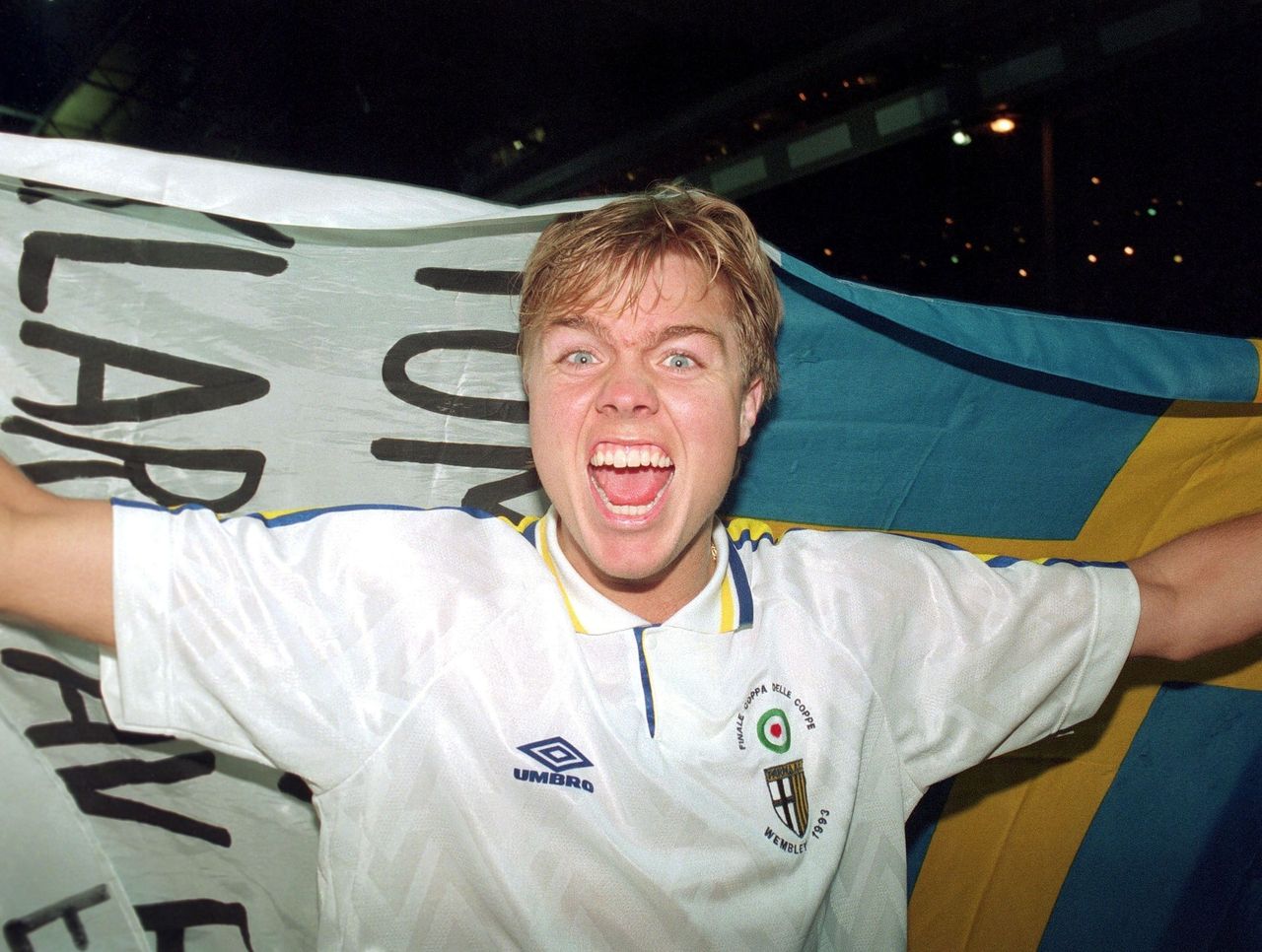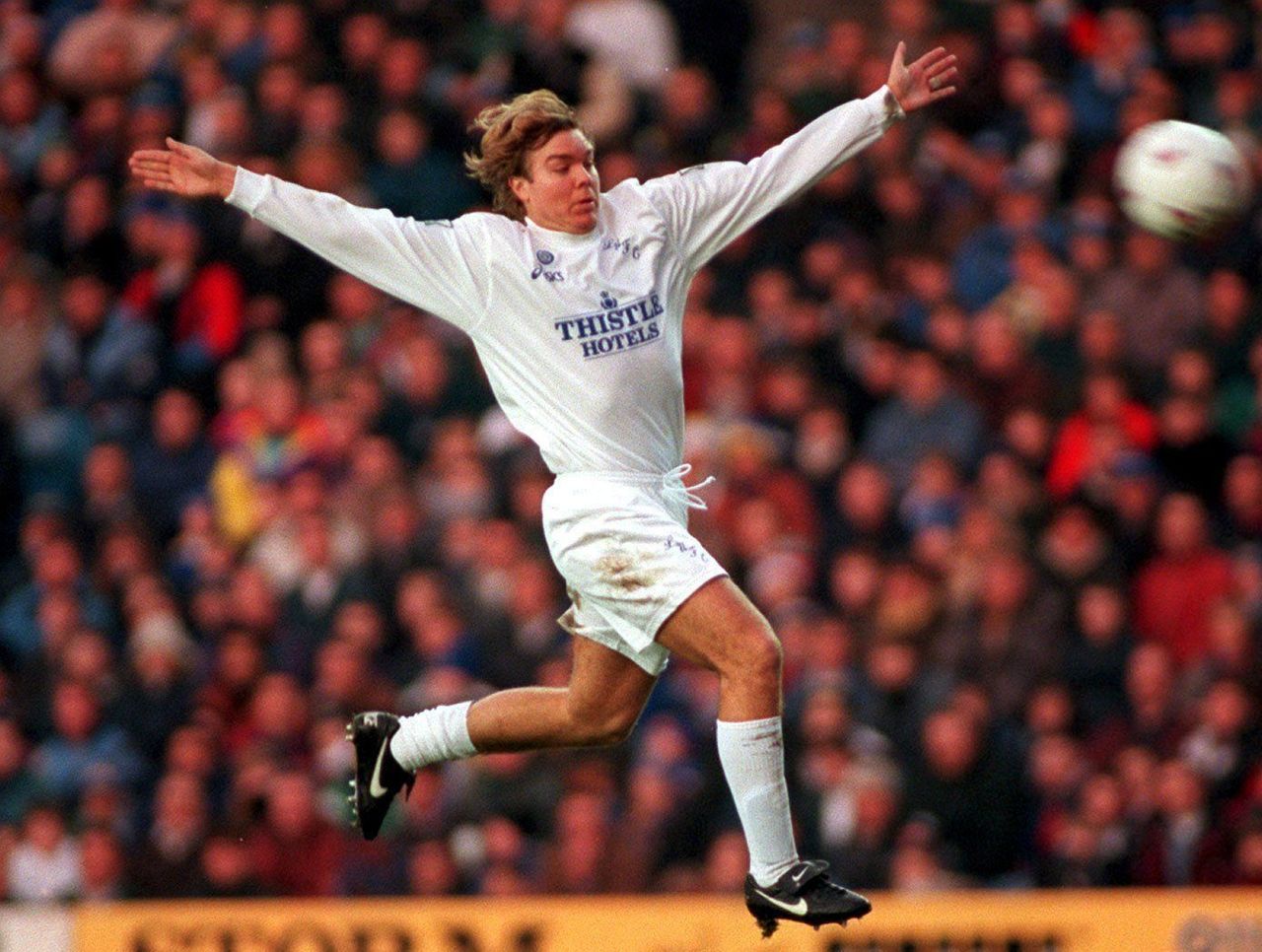Cult Heroes and Club Icons: Tomas Brolin's Dismal Spell in English Football
From Swedish national hero to Serie A standout to Premier League flop, Tomas Brolin’s career arc is one of both dazzling highs and disastrous lows.
Like a child star that ballooned to near-unrecognizable rotundness, doubts during his career that he possessed the fitness to play in the top flight became prescient upon his retirement in 1998.
Not the first player to enjoy a pie and a pint – or a vodka orange in his case – the Swedish attacker was one of the last of a dying breed of footballers who didn’t sacrifice their passions off the pitch for their play on it.
Now a successful restaurateur in his homeland, Brolin’s career slammed to a halt at 28 after a decade-and-a-half of mercurial top-flight football.
A legend in Sweden and a star in the Northern reaches of Italy, his disastrous, high-profile move to Leeds was noted for its calamity.
Born in a fishing village on the shore of the Gulf of Bothnia, 300 kilometres north of Stockholm, Brolin joined his local club Nasviken IK in the Hudiksvall Municipality as a 7-year-old.
The attacking midfielder made his professional debut for the fourth-tier side as a 14-year-old before being spotted by GIF Sundsvall, where he played for three seasons while continuing his education. His next stop was IFK Norrkoping, where he made but nine appearances before a switch to Italy’s top flight.
Prosperity in Parma
Brolin, now 20, joined Parma upon its return to the Serie A, and almost immediately forged a prosperous attacking tandem with Italian striker Alessandro Melli. Brolin, an attacking midfielder, and Melli, a traditional forward, combined for 20 goals in their first season together.
Parma finished joint fifth in its return to the top tier, and for the first time in club history, qualified for European competition. The following season, Brolin appeared in all 34 Serie A matches, scoring four goals as the club finished sixth and beat Juventus in the Coppa Italia final. It was the club's first trophy.

The 1991-92 season was a precursor for the following campaign, when the club splashed the cash for marquee stars Faustino Asprilla and Sergio Berti, leading to a victory over Royal Antwerp in the European Cup Winners' Cup final. Brolin struggled to find playing time behind the Colombian Asprilla.
Parma repeated as European finalists the next year in losing to Arsenal, though the acquisitions of Gianfranco Zola and Massimo Crippa signaled the beginning of the end for the cherubic Swede.
With the club sitting two points clear atop the table in November 1994, Brolin broke his foot during a Euro '96 qualifier. By the time he returned in April 1995, the club were eight points adrift, and Brolin was a different player.
From a modest start in the near obscurity of lower-tier Swedish football to the heights of Serie A, Brolin’s rise to footballing prominence was meteoric.
Superlative for Sweden
While Brolin emerged as a player with a penchant for flair with Parma, his performances at the same time for Sweden cemented his status as a national hero.
First, there was a goal against Brazil in the 1990 World Cup as a near-unknown 18-year-old, followed two years later by the famous "Brolin-Dahlin-Brolin" tally against England and its red-faced gaffer Graham Taylor in Euro '92 that spawned the seminal headline "Swedes 2, Turnips 1."
A golden generation of Swedes - with Brolin at the centre - built on a stellar Euro '92 performance with a third-place finish at the 1994 World Cup, where the Scandinavians narrowly missed a finals match-up with Italy courtesy of a Bebeto 72nd-minute goal. Brazil would go on to win the tournament, beating the Italians in the finals on penalties.
Brolin was now a star, making the all-tournament team as a 24-year-old, prompting a Yorkshire switch after being formally displaced in the Parma side by Bulgarian legend Hristo Stoichkov.
High-Profile Yorkshire Move
On the heels of a decorated stop in Italy paired with successes on the world stage, a move to Leeds for the hefty talent was slapped with an equally hefty price tag.
Considered one of the worst signings in Premier League history, Brolin’s name is etched in the pantheon of disappointments alongside Bosko Balaban, Ali Dia, and easy pick Marco Boogers.
Leeds thought it was buying a world-class player, and Brolin thought he still was one.
"I was going to be the spider in the middle of the web, pulling the strings in midfield. I was the one who was going to play the decisive pass to Tony Yeboah. Everything was great … so I signed," Brolin admitted.
Things started as expected, but a rash of injuries forced manager Howard Wilkinson to shift his spherical Swede to the right wing. Against his will, Brolin scored twice in a 2-0 defeat of West Ham. He was asked to play on the right again the following week against Liverpool.
"At Leeds I was going to run up and down the right like an idiot. That wasn't me. So I decided … I was going to be piss-poor against Liverpool."

For all the cliches of the contemporary athlete and the ambiguity of post-match pressers, Brolin was refreshing in his honesty.
"Everyone thinks I was rubbish all the time at Leeds but there you can question the journalists. Against West Ham I scored both goals and was voted man of the match. The fans were singing my name. The papers wrote that I was a success."
Brolin continued, saying "After the Liverpool game the Swedish papers wrote that I was rubbish. And they were right. But nobody – nobody – asked me why. How the hell can you go from being a success to being a disaster in one week? And, as I wasn't picked any more, everyone just assumed I was rubbish."
Wilkinson was replaced by George Graham the following season, though he too quickly became frustrated with Brolin, with the 47-time capped international going on loan to FC Zurich before returning on to Parma on a temporary basis.
He returned to England for a final Premier League spell at Crystal Palace in 1998, but after 13 appearances was deemed too fat to play, and was made assistant manager to Attilio Lombardo when Steve Coppell was moved aside. Palace were subsequently relegated, and Brolin hasn't been seen in England since.
One of the last bastions of an era of cocktails, crisps, and carousing, Tomas Brolin is widely thought of as one of the worst players in Premier League history. Don't bother telling Brolin - not sure he'd care.
"It was lucky that I decided just to smile about the whole thing from the beginning, otherwise I would have gone under as a person."